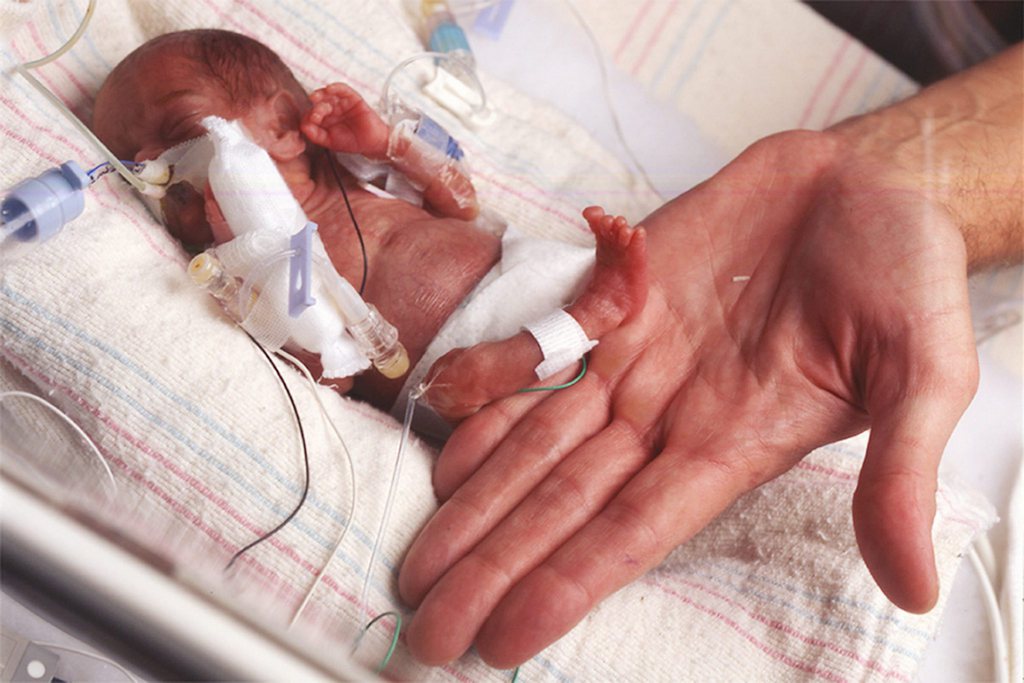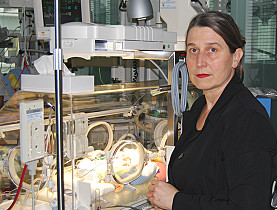Doping drug EPO protects brains of premature babies

Giving erythropoietin (EPO) – used illegally by endurance athletes – to babies immediately after birth significantly reduces brain damage, according to scientists in Geneva.
Premature babies are far more at risk than infants born at term of developing brain damage resulting in neurodevelopmental delay that may persist throughout their lives.
A team of specialists in infant brain imaging from the Faculty of Medicine at the University of GenevaExternal link and the University Hospital of GenevaExternal link has shown that administering three doses of EPO – a hormone that stimulates the formation of red blood cells – immediately after birth significantly lowers brain damage in babies.
The results were published in the Journal of American Medical AssociationExternal link on Tuesday.
Nearly 400,000 children are born in Europe every year before the 32nd week of pregnancy and 2.6 million worldwide, according to the World Health Organization, including around 80 at the University Hospital of Geneva.
There are numerous health implications for children who are born so prematurely, including brain damage and incomplete maturation of the brain, especially the white matter responsible for propagating information in the nervous system.
New imaging techniques, including magnetic resonance imaging (MRI) – a non-invasive method with no radiation exposure – make it possible to identify brain damage at an early stage that could have long-term consequences on a child’s development, including motor and cognitive problems, attention and learning difficulties.
Beneficial effect
EPO, whose doping effects among athletes are well-known, is a treatment commonly used to prevent anaemia; it is also used in preterm infants, as it reduces the need for blood transfusions. A number of recent studies have shown that the same hormone can also protect neurons from injury or degeneration.
The Geneva team, led by Petra Susan Hüppi, set out to verify the impact of EPO on the brains of premature babies. They reviewed the MRI scans of 165 children, half of whom had received three doses of EPO within two days of birth.
“We found that the brains of the children who had received the treatment had much less damage than those in the control group, who had been given a placebo,” explained Russia Ha-Vinh Leuchter, co-author of the study.
“This is the first time that the beneficial effect of the EPO hormone on the brains of premature babies has been shown.”
‘Important step’
The research forms part of an extensive Swiss study carried out in cooperation with the University of Zurich, covering 495 children born in Switzerland between 2005 and 2012.
The second – and main – part of the work will focus on the neurocognitive development of these children, who will take part in various developmental tests at the age of two and five years.
“State-of-the-art developmental testing as performed in our Swiss developmental paediatric units should confirm the effect that EPO treatment has on the neurodevelopmental disabilities that very premature babies often show during their infancy,” Hüppi said.
“If this does turn out to be the case, we will have taken an important step in preventing brain damage and its long-term consequences in premature babies.”

In compliance with the JTI standards
More: SWI swissinfo.ch certified by the Journalism Trust Initiative


You can find an overview of ongoing debates with our journalists here. Please join us!
If you want to start a conversation about a topic raised in this article or want to report factual errors, email us at english@swissinfo.ch.